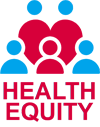(HBSC)-Italian Survey

Project title: “Health Behaviour in School-aged Children” (HBSC)-Italian Survey
Duration of the project: 2002 – ongoing
Main Topic
Adolescence is a critical period in people life with specific health and developmental needs. Several changes, both biological as well as social, that typically take place during this phase of life, can have consequences over the life-course. In addition, different individual (e.g. disabilities, chronic illnesses) and environmental factors (e.g. sociocultural and economic contexts) can contribute to determine health inequalities in adolescents. The WHO in the “Health for the World’s Adolescents: a second chance in the second decade” report (2014) underlined the heterogeneity of childhood and young adulthood emphasized by the presence of vulnerability in some young people as well. In order to promote interventions and policies focused on adolescent health, as well as to assure equality, the identification of specific determinants and, subsequently, the knowledge of their positive or negative effects are needed.
The Italian “Health Behaviour in School-aged Children” (HBSC) is a national survey that collects data on health and wellbeing among adolescents.
The Italian HBSC survey is included in the HBSC Research Network, an international alliance of researchers from several Europe and North America countries and regions. Since 1982, the Network provides information on health and wellbeing of young people to support their education and promote health policies. Italy joined the international network in 2001 and to date has performed five data collection (in 2002, 2006, 2010, 2014 and 2018).
Objective
The aim of HBSC survey is to achieve the knowledge of health and wellbeing of adolescents taking into consideration several issues of their life namely social context (e.g. family, peers and school), health outcomes (e.g. self-rated health, life satisfaction, health complaints, injuries, overweight and obesity and body image), health behaviours (e.g. eating behaviour, oral health, weight reduction behaviour, physical activity, television watching) and risk behaviours (e.g. tobacco use, alcohol use, cannabis use, sexual behaviour, fighting and bullying).
Type of study
The Italian HBSC data collection is carried out following the international HBSC protocol. The investigation is based on a cross-sectional study design. The target population is 11-, 13- and 15years-old boy and girl students enrolled in the first and third year of middle school (11 and 13 years) and the second year of high school (15 years). Data collection is performed every four years at regional level through a self-report questionnaire. Cluster probability to size sampling of school classes is carried out.
Description WP/Activity
HBSC allows to describe differences and inequalities in adolescent health and evaluate their present and future implications for the health care system.
The associations between gender, age, geographic (i.e. housing and residential area), as well as socioeconomic inequalities (i.e. Family Affluence Scale (FAS) and educational level of parents) and some specific health outcomes in young people are evaluated. The FAS consisted of several easily answered questions designed to quantify material assets
in the family.
Expected results
Geographic differences in adolescent health and risk behaviours by area of residence (North, Center, South):
Risk behaviours prevalence by area of residence is always higher in the Southern regions. Some behaviour, for example unhealthy dietary habits, alcohol consume, are also more widespread among the adolescents living in Southern Italy.
Adolescent’s risk behaviours prevalence by FAS (Family Affluence Scale)
The HBSC data show a variation and inequalities of health outcomes and health related behaviours related to family affluence with effects at both individual and country level.
Responsible of the project: Paola Nardone (paola.nardone@iss.it)
Responsible of the WP/Activity on inequalities: Paola Nardone (paola.nardone@iss.it), Angela Spinelli (angela.spinelli@iss.it), Serena Donati (serena.donati@iss.it), Daniela Pierannunzio (daniela.pierannunzio@iss.it), Enrica Pizzi (enrica.pizzi@iss.it), Silvia Ciardullo (silvia.ciardullo@iss.it)
Department/Center: CNAPPS
Project website: https://www.epicentro.iss.it/hbsc/
